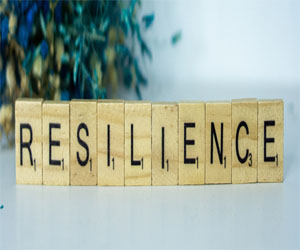


Navigating The Path To Positive Changes

A gluten-free lifestyle represents a significant shift in dietary choices, one that can bring about positive changes in your health and well-being. Whether you're adopting this way of eating out of necessity due to gluten sensitivity or celiac disease, or you're simply looking to make healthier food choices, transitioning to a gluten-free lifestyle can be a transformative journey. In this article, we'll explore the key changes associated with adopting a gluten-free lifestyle and how to navigate them effectively.
1. Understanding Gluten: The first step in transitioning to a gluten-free lifestyle is to understand what gluten is and where it hides. Gluten is a protein found in wheat, barley, and rye. This means that foods like bread, pasta, and most baked goods typically contain gluten. Learning to recognize sources of gluten is essential to make informed dietary choices.
2. Reading Labels: One of the most crucial aspects of adopting a gluten-free lifestyle is the ability to read food labels effectively. Look for labels that clearly indicate "gluten-free" to ensure a product is safe. Additionally, become adept at spotting hidden sources of gluten, as it can appear under various names in ingredient lists.
3. Exploring Gluten-Free Alternatives: Fortunately, the market offers a wide variety of gluten-free alternatives to traditional gluten-containing products. From gluten-free bread and pasta to baking mixes, you can enjoy many of your favorite foods without sacrificing taste or quality.
4. Meal Planning: Meal planning becomes an integral part of a gluten-free lifestyle. Planning your meals and snacks in advance ensures that you have gluten-free options readily available and reduces the risk of accidental gluten exposure when dining out or on the go.
5. Cooking And Baking Skills: For many, transitioning to a gluten-free lifestyle involves developing new cooking and baking skills. Gluten-free flours, thickeners, and other ingredients may behave differently than their gluten-containing counterparts. Embrace the opportunity to explore new recipes and cooking techniques.
6. Dining Out And Travel: Dining out and traveling can pose unique challenges for those on a gluten-free diet. It's essential to communicate your dietary needs clearly to restaurant staff and do some research in advance to identify gluten-free options at your destination.
7. Nourishing Your Body: A gluten-free lifestyle can provide an opportunity to rethink your dietary choices. Focus on nourishing your body with whole, unprocessed foods like fruits, vegetables, lean proteins, and gluten-free grains like quinoa and rice. This can lead to better overall health and well-being.
8. Seeking Support: Transitioning to a gluten-free lifestyle can sometimes feel overwhelming. Seek support from online communities, local support groups, or a registered dietitian who specializes in gluten-related issues. They can provide guidance, advice, and emotional support throughout your journey.
9. Embracing Mindful Eating: Going gluten-free encourages a more mindful approach to eating. Pay attention to what you're putting into your body, read labels diligently, and make conscious food choices. This practice can lead to a healthier and more positive relationship with food.
Adopting a gluten-free lifestyle involves several significant changes, from understanding what gluten is to mastering label reading, meal planning, and cooking skills. While it may initially seem challenging, the transition can lead to numerous positive changes in your health and overall well-being. By embracing these changes with a proactive and open mindset, you can navigate the gluten-free lifestyle effectively and reap the benefits it offers. Remember that it's essential to consult with a healthcare professional or a registered dietitian to ensure that you're meeting your nutritional needs while avoiding gluten-containing foods.


 One of the primary benefits of mindfulness is its ability to reduce stress. Mindful meditation and breathing techniques can help individuals manage the overwhelming stressors of modern life. By focusing on the present moment, individuals can break free from the cycle of worry about the future or dwelling on the past. This mental shift allows them to experience a sense of calm and relaxation, reducing their stress levels.
One of the primary benefits of mindfulness is its ability to reduce stress. Mindful meditation and breathing techniques can help individuals manage the overwhelming stressors of modern life. By focusing on the present moment, individuals can break free from the cycle of worry about the future or dwelling on the past. This mental shift allows them to experience a sense of calm and relaxation, reducing their stress levels.
Furthermore, mindfulness promotes mental clarity and emotional balance. In a world filled with distractions, our minds can become cluttered, making it difficult to concentrate and find inner peace. Mindfulness helps in decluttering the mind and provides a clear space for focused thinking. It also allows individuals to observe their emotions without reacting impulsively, fostering emotional stability and resilience.
Meditation, a core component of mindfulness, is a practice that enables individuals to delve deep into their inner selves. Through regular meditation, people can develop a better understanding of themselves and their thought patterns. This self-discovery is instrumental in cultivating inner peace. By recognizing their thought patterns and emotional responses, individuals can make conscious choices about how they react to various situations, leading to a greater sense of control and inner harmony.
Mindfulness is not limited to the individual; it also extends to the way we connect with the world. By being present and fully engaged in our interactions and surroundings, we foster a deeper connection with the people and environment around us.
The Crucial Connection Between Diet And Lifestyle
 Conversely, a diet high in processed foods, excessive sugars, and unhealthy fats can lead to chronic conditions such as obesity, diabetes, and heart disease. It can also contribute to mood swings and fatigue, affecting our daily productivity and overall quality of life.
Conversely, a diet high in processed foods, excessive sugars, and unhealthy fats can lead to chronic conditions such as obesity, diabetes, and heart disease. It can also contribute to mood swings and fatigue, affecting our daily productivity and overall quality of life.
Lifestyle: The Canvas Of Well-Being
Your lifestyle encompasses the daily choices you make - how you spend your time, your activity level, sleep patterns, and stress management. It's the canvas upon which your health is painted. Regular exercise, adequate sleep, and stress reduction techniques are vital components of a healthy lifestyle. Exercise not only helps maintain a healthy weight but also boosts mood, enhances cardiovascular health, and increases longevity. Sleep, on the other hand, is when your body repairs and rejuvenates itself. A lack of quality sleep can lead to a weakened immune system, cognitive impairments, and an increased risk of chronic diseases.
Furthermore, the ability to manage stress effectively is a cornerstone of a healthy lifestyle. Chronic stress can lead to a variety of health issues, including anxiety, depression, and digestive problems.
 Mindfulness Meditation: Mindfulness meditation is a powerful relaxation technique that doesn't require an extensive time commitment. Just a few minutes each day can make a significant difference. By focusing on the present moment and being fully aware of your thoughts and feelings without judgment, you can reduce stress and enhance relaxation.
Mindfulness Meditation: Mindfulness meditation is a powerful relaxation technique that doesn't require an extensive time commitment. Just a few minutes each day can make a significant difference. By focusing on the present moment and being fully aware of your thoughts and feelings without judgment, you can reduce stress and enhance relaxation.
Deep Breathing Exercises: Deep breathing is a simple and quick relaxation method that can be practiced anywhere. Taking slow, deep breaths calms the nervous system, reduces stress, and promotes a sense of calm. Try inhaling deeply through your nose for a count of four, holding for four, and then exhaling for a count of four.
Progressive Muscle Relaxation: This method involves systematically tensing and then relaxing different muscle groups in your body. It helps release physical tension and promote relaxation. It can be done in a short amount of time and is particularly effective for those with a hectic schedule.
Visualization: Visualization involves mentally immersing yourself in a peaceful, calming place or situation. Close your eyes, and imagine a serene beach, a forest, or any location that makes you feel relaxed. Visualization can transport you to a tranquil mental space even during a busy day.
A Journey To Joyful Living
 Shifting Perspective: Gratitude encourages a shift in perspective from a "glass-half-empty" outlook to a "glass-half-full" mindset. By consciously looking for and appreciating the positive aspects of life, we train our minds to focus on what's good, thereby increasing our overall happiness.
Shifting Perspective: Gratitude encourages a shift in perspective from a "glass-half-empty" outlook to a "glass-half-full" mindset. By consciously looking for and appreciating the positive aspects of life, we train our minds to focus on what's good, thereby increasing our overall happiness.
Reducing Stress And Anxiety: Gratitude has a profound impact on our stress levels and emotional well-being. When we practice gratitude, it activates the brain's reward system, releasing feel-good neurotransmitters like dopamine and serotonin. These chemicals counteract the effects of stress hormones, leading to reduced anxiety and increased relaxation.
Enhancing Emotional Well-Being: Regularly practicing gratitude is associated with higher levels of happiness, contentment, and life satisfaction. It promotes a more positive emotional atmosphere, allowing us to experience joy even in the midst of life's challenges.
Fostering Resilience: Gratitude is a powerful tool for building emotional resilience. When we can find reasons to be thankful, even in difficult situations, we develop the ability to bounce back from adversity and maintain a positive outlook on life.
Nourishing The Body, Mind, And Spirit
 Digestive Health: A healthy gut is a cornerstone of holistic health. Superfoods like yogurt with probiotics, chia seeds, and fermented foods support a balanced gut microbiome. A well-functioning digestive system is not only essential for physical health but also for mental well-being.
Digestive Health: A healthy gut is a cornerstone of holistic health. Superfoods like yogurt with probiotics, chia seeds, and fermented foods support a balanced gut microbiome. A well-functioning digestive system is not only essential for physical health but also for mental well-being.
Energy And Vitality: Superfoods are often excellent sources of complex carbohydrates, healthy fats, and plant-based protein. These macronutrients provide the body with energy, promoting vitality and endurance for daily activities and exercise. Having the energy to enjoy life to the fullest is a vital aspect of holistic health.
Mental Clarity And Mood: The nutrients in superfoods can positively influence brain health. Omega-3 fatty acids found in fatty fish, for example, have been linked to improved cognitive function and mood regulation. A clear mind and balanced mood are integral to holistic health.
Heart Health: Superfoods like nuts, berries, and fatty fish are known for their heart-protective properties. A healthy heart ensures optimal blood circulation, reducing the risk of cardiovascular issues and supporting overall vitality.
Emotional And Psychological Well-Being: The impact of diet on mental health is increasingly recognized. Superfoods, particularly those rich in antioxidants and essential nutrients, can contribute to emotional well-being by reducing stress, anxiety, and depressive symptoms.
Spiritual Nourishment: In holistic health, nourishing the spirit is just as important as nourishing the body and mind. Some superfoods like green tea and matcha, used in meditation practices, offer a sense of calm and spiritual connection.
Environmental And Ethical Considerations: Superfoods can be part of a holistic approach by supporting sustainable and ethical food choices. Choosing locally sourced, organic, and ethically produced superfoods aligns with the holistic principle of interconnectedness with the environment and community.
Nurturing Strong Bonds
 Long-Term Bonding: Resilient relationships are more likely to withstand the test of time. By learning to adapt to each other's changing needs and circumstances, couples and families can build enduring bonds.
Long-Term Bonding: Resilient relationships are more likely to withstand the test of time. By learning to adapt to each other's changing needs and circumstances, couples and families can build enduring bonds.
Practical Strategies For Building Resilience In Relationships
Effective Communication: Open, honest, and empathetic communication is the foundation of resilient relationships. Encourage active listening and express feelings and concerns constructively.
Conflict Resolution Skills: Learn how to resolve conflicts in a healthy way. Use "I" statements to express your feelings and avoid blaming. Seek compromise and solutions that benefit both parties.
Emotional Intelligence: Develop emotional intelligence by recognizing and managing your emotions and those of your loved ones. Understanding and regulating emotions can prevent unnecessary conflict.
Quality Time: Spend quality time with your loved ones. These shared experiences create a sense of togetherness and strengthen your connection.
Respect Boundaries: Respect each other's boundaries and individuality. It's crucial to give each person the space and autonomy they need.
Adaptability: Understand that life brings change, and relationships must adapt. Flexibility and a willingness to adjust to new circumstances are key to resilience.
Problem-Solving: Work together to find solutions to challenges. Instead of dwelling on problems, focus on identifying actionable steps to address them.
Positive Reinforcement: Acknowledge and celebrate successes and milestones in your relationship. This positive reinforcement can boost morale and create a sense of accomplishment.
 Aromatherapy, rooted in ancient practices, is a holistic approach to wellness that utilizes essential oils to enhance the physical, emotional, and mental aspects of our lives. It recognizes the interconnectedness of these facets and aims to create a harmonious balance within us. Essential oils are at the heart of this practice, and their healing properties are at the forefront of the pursuit of holistic well-being.
Aromatherapy, rooted in ancient practices, is a holistic approach to wellness that utilizes essential oils to enhance the physical, emotional, and mental aspects of our lives. It recognizes the interconnectedness of these facets and aims to create a harmonious balance within us. Essential oils are at the heart of this practice, and their healing properties are at the forefront of the pursuit of holistic well-being.
Physical Well-Being
Essential oils offer a wide range of benefits for physical health. They can be used for relaxation and stress reduction through massages or diffusers. For example, lavender oil is known for its calming properties, while eucalyptus oil can help with respiratory issues. These oils can also assist in alleviating pain, improving sleep quality, and enhancing skin health. Incorporating essential oils into your daily routine, whether through topical application or inhalation, can be a holistic way to address physical well-being.
Emotional Well-Being
Emotions play a significant role in holistic well-being, and essential oils can be powerful allies in managing them. Aromatherapy can help reduce anxiety, uplift spirits, and foster emotional balance. Scents like citrus and bergamot can boost mood, while oils like chamomile and frankincense are known for their calming and grounding effects. By using essential oils to create a positive and nurturing emotional environment, individuals can take steps toward achieving emotional well-being.
Mental Well-Being
Mental health is a crucial component of holistic well-being. The soothing and rejuvenating effects of essential oils can help alleviate stress, reduce mental fatigue, and improve focus and concentration. Oils like peppermint and rosemary are often used to enhance mental clarity and cognitive function. By incorporating these oils into your daily routines, such as through diffusers or as part of meditation practices, you can support your mental well-being.